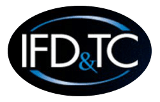Suggested Technology Topics
- Hard Tech Suggestions
- Technology From the Field Perspective Suggestions
- Tech Showcase and Focused Technology
- Automated questionnaire development
- Biospecimen Collection Systems
- DEI: Best Practices in Tech-Related Survey Accessibility, Section 508, WCAG accessibility compliance
- Innovative Data Capture Technologies: Wearable devices, implanted technology and sensors, drones, speech-to-text, apps, web-scraping, APIs, etc.
- International data collection: technological challenges and successes, language support, unique perspectives
- Migrating and updating data collection modes (e.g., moving from in-person to web-based): tech platforms, best practices, obstacles
- Multi-mode survey systems: authoring tools, data collection implementations, streamlining solutions, challenges
- Mobile and web survey administration: optimizing instruments across multiple devices/screen sizes; incorporating multimedia
- New to market or updates to existing survey technologies
- Overcoming bottlenecks for “big data” use
- Open source software: data collection applications; use, development and challenges of open source software
- Showcase of web survey programs, data entry programs, in-person data collection programs
- The universe of mobile devices: app-development challenges, portability, performance, software platforms
- Technology to help increase response rates
- Working examples of platforms and databases used (e.g., REDCap, Lime, Voxco, Qualtrics, Hatteras, other survey software)
- Administrative Data and Social Media Data Management
- Data visualization and reporting: Tools, Infographics, user-friendly practices, communicating to general audiences
- Dashboards and integrated software to help field operations better monitor complex studies
- Data submission, upload, and pipelines
- Survey metadata standards and tools, Data Documentation Initiative (DDI)
- Tools and techniques for data management or integration of multiple data sources
- Tagged databases for unstructured data; non-relational; NoSQL
- Artificial intelligence, Machine-learning
- Adopting innovations – challenges and advantages related to workforce skills/knowledge, organization size, budget restrictions, etc.
- Call center infrastructure: maintenance and improvements, on-premises versus cloud, centralized location versus remote callers, IVR
- Leveraging software as a service (SaaS) and/or platform as a service (PaaS) in survey operations, using hybrid models that incorporate vendors like Twilio
- Mapping technologies for survey and field: mapping services, GPS, GIS, and drones
- Multimedia: use in surveys, quality control, e-learning systems
- New methods for questionnaire and systems testing: integrated testing, automated testing methods
- Possible blockchain technology used for data collection (new)
- Programming languages, platforms, and systems
- Remote call centers and the technology challenges that come with it (new)
- Tools for response coding: new technologies and procedures
- Compliance with security standards
- Efficient multi-factor authentication levels (new)
- Environments including cloud computing
- Field technology, securing field data collection
- Vetting and monitoring vendors
- COVID pandemic – thorough debriefing of what worked and what did not
- Future of survey data collection post pandemic
- How much will we go back to how we did things before COVID – What changed forever?
- Instrument interface design
- Practical solutions for optimizing surveys based on high quality visual design across platforms and mobile devices
- Responsive design
- Transitioning from mobile devices and converting them to metadata (new)
- Technology to manage standardization across platforms and devices
- Using metadata to enhance reach across the different populations (new)
- Building paradata collection into your projects
- Dashboards to monitor production data collection process
- Including quality indicators in project production monitoring
- Technical and ethical considerations
- Tracking respondent behaviors within web surveys, e.g., answer changes, backing up, straight-lining response
- Accessibility across modes
- Advantages and disadvantages of different web and CATI software packages
- Cyber Security in Survey methods (new)
- Communication and interaction with study participants and/or project staff
- Data security and The Cloud
- Data Architecture
- Instrument testing procedures
- Managing Hybrid Survey Workforces (new)
- Quality Assurance best practices
- Sample Management Systems
- Technology platforms and devices, e.g., social media, email, SMS, web, smartphones, handheld devices
- TCPA/FISMA (including specific phone and software set-ups that are compliant)
- AI, Machine Learning, Sustainability (Are we testing that to see if it is valuable) (new)
- Collecting CAPI data using online video conferencing
- Improving data entry programs
- Methodology for ethically using AI driven decisions thru data collection (new)
- Nonprobability methods to collect data, e.g., web panels, crowd sourcing
- New approaches to tracking and locating respondents
- Remote call centers
- Using social media and other technology to communicate with longitudinal or panel study participants or invite study participation
- Using texting in data collection (e.g., sending survey links, sending reminders, etc.)
- Using QR codes in mail push to web
- Web-based focus groups
- Available options and pros and cons of different approaches
Organizers might plan to host a Tech Showcase – multiple simultaneous “booth style” presentations to share recent survey technology innovations. Please submit an abstract describing your Tech Showcase idea, including information about any tech or AV requirements. Please note that other technology presentations, panels or round tables will not be presented during the Tech Showcase to allow all interested attendees the flexibility to attend.
If you would like to volunteer to present a workshop or “focused technology” session, please contact a Tech Program Team Member, Jose Gonzalez or Sangeetha Immani to discuss your idea. Focused Technology Sessions typically last about one hour and fifteen minutes and provide an in-depth, hands-on type of training for Tech conference attendees.

